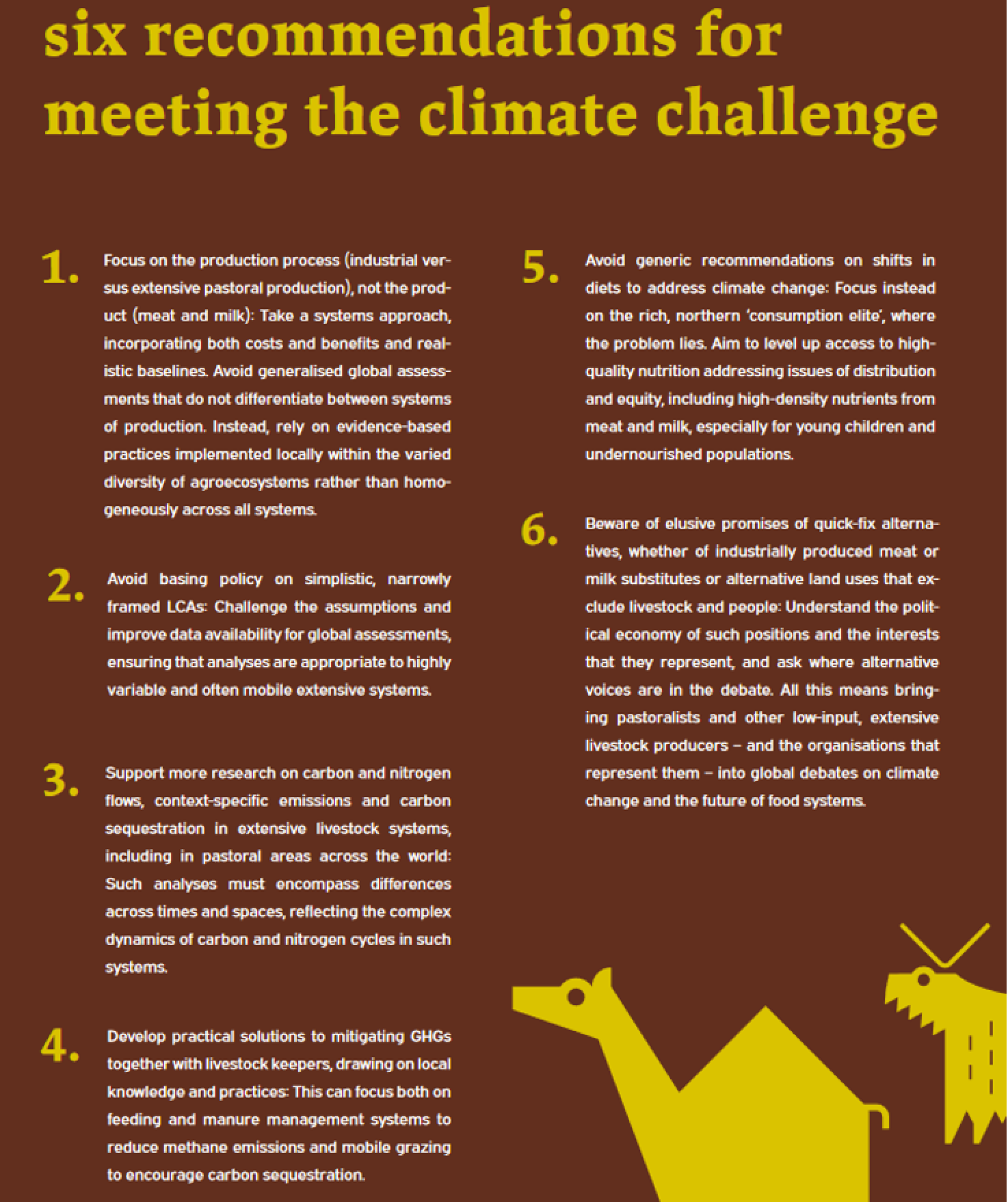The narrative that ‘meat and milk are bad’ because livestock production is a major greenhouse gas emitter is widespread, promoted by international agencies, campaign groups, corporations and governments. This overarching narrative has led to generalised policy prescriptions, applicable to some western diets and to some forms of livestock production. Of course, caveats are sometimes applied, but policy and media messages tend to simplify, meaning that the vast differences between industrial and extensive livestock production are often neglected in policy and campaign messages.
As a result, inappropriate policies could do great damage to livelihoods, landscapes and the life chances of people reliant on extensive livestock production, including pastoralism. Such systems involve many millions of people across rangelands covering over half the world’s land surface.
Where do the figures that are widely shared in the media and in policy debates come from? This report delves into the assumptions and uncertainties that are central to these influential calculations. For example, due to the lack of data from many parts of the world, assumptions on livestock emissions are based on studies of intensive, contained, industrial systems, with data often extrapolated to extensive livestock production. Additionally, the impact of different greenhouse gases is assessed in controversial ways. Methane, emitted in large quantities from livestock systems, has very different impacts on global warming compared to carbon dioxide, for example.
Wider environmental benefits offered by extensive livestock systems to ecosystem services, landscape protection and carbon sequestration may be missed by a narrow life cycle assessment.
A wider systems approach is urgently needed for assessing livestock-related emissions in low-input, extensive systems including pastoralism, allowing for a more targeted and realistic approach to mitigation. A focus on the systems of production rather than just on the products (such as meat and milk) is essential. A systems approach would acknowledge movement across rangelands and account for the benefits to ecosystem services and potential carbon sequestration.
Analyses of industrial systems equally must include the costs of cropped feed, fossil fuel intensive processing, transport, marketing and infrastructure. Understanding extensive livestock systems therefore requires more research into how to manage emissions in rangelands, while still securing livelihoods and environmental benefits.
A more balanced approach to global debates about changing diets is also required. The provision of high-density animal protein is essential for nutrition in many parts of the world, especially for poorer people and children. This of course contrasts with the clear need to transform diets in other places, where over-consumption of industrially produced animal-source foods creates both health and environmental problems.
Livestock, therefore, are not always bad for the planet, and the debate on climate change and the protein transition urgently needs to become more sophisticated. Low-impact, extensive livestock systems, including pastoralism, can show a way to the future.

| Year of publication | |
| Authors | |
| Geographic coverage | ItalySenegalChinaGlobal |
| Originally published | 08 Oct 2021 |
| Knowledge service | Metadata | Global Food and Nutrition Security | Food security and food crisesClimate extremes and food securitySustainable Food Systems | DietFood systemProtein consumption |
| Digital Europa Thesaurus (DET) | livestocklivestock farmingclimate changemeatmilkpolicymakinggreenhouse gas |
